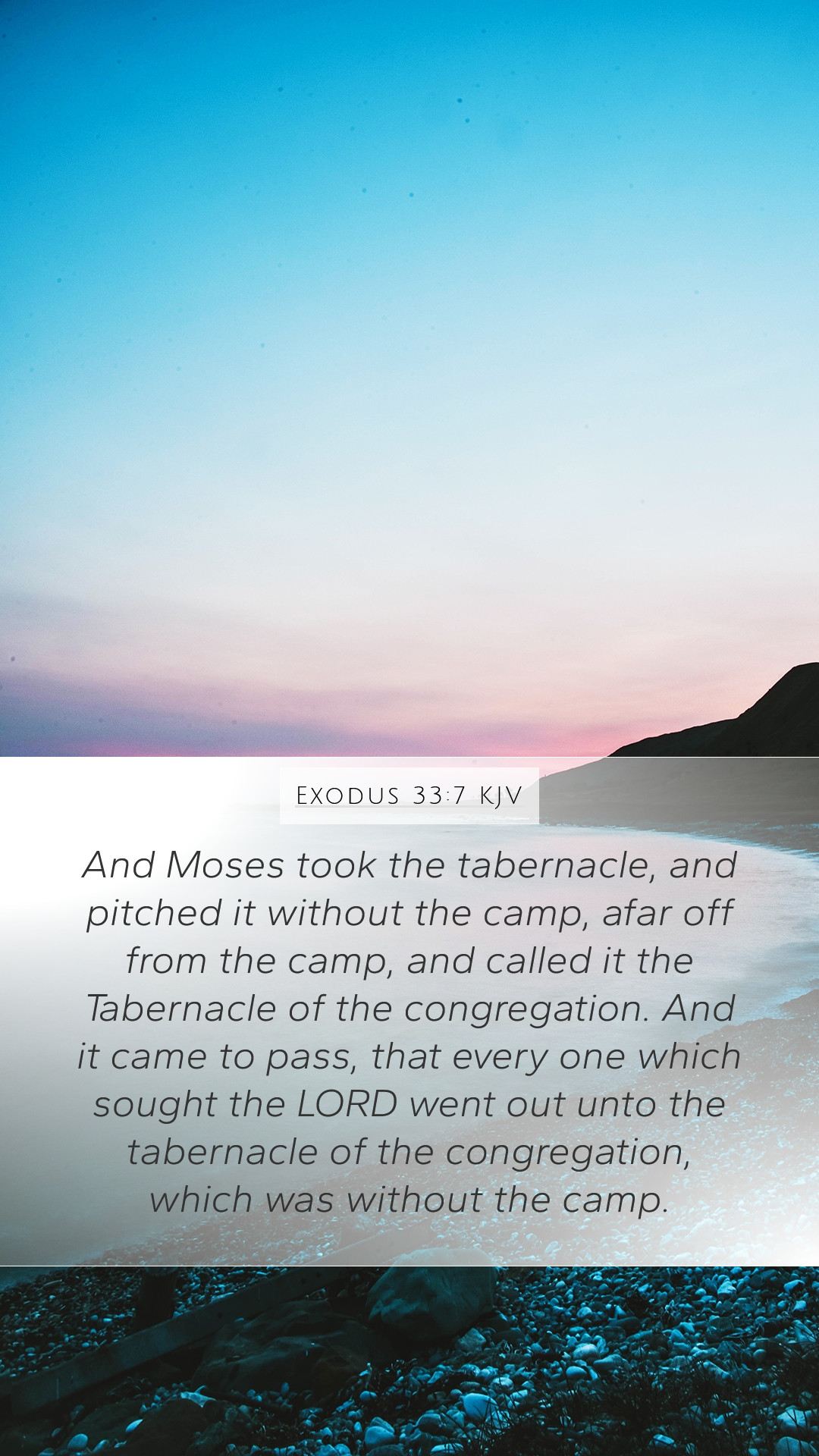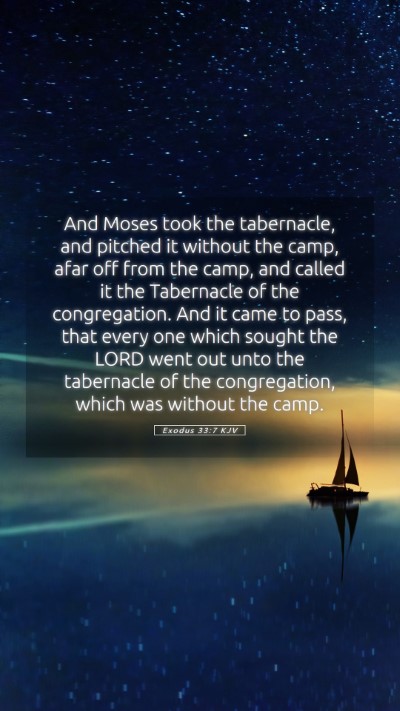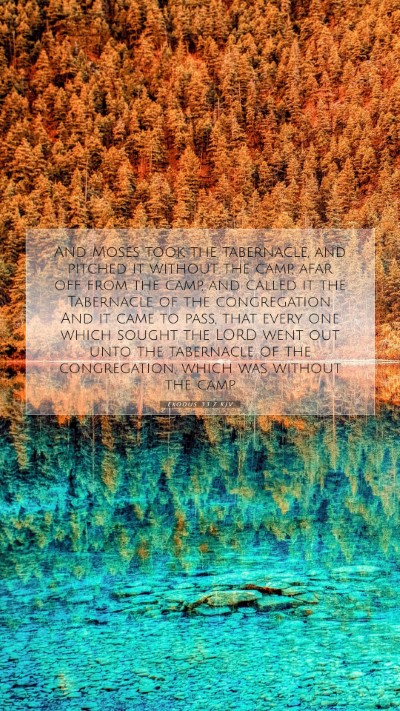Understanding Exodus 33:7 - Bible Verse Meaning and Commentary
Exodus 33:7 reads: "Now Moses used to take the tent and pitch it outside the camp, far off from the camp, and he called it the tent of meeting. And everyone who sought the Lord would go out to the tent of meeting which was outside the camp."
This verse holds significant implications both historically and spiritually. It tells us about the practices of Moses, specifically how he engaged with God and the importance of seeking the Lord. Let's delve deeper into the interpretation of this verse combining insights from several public domain commentaries.
Contextual Background
In this passage, we find Moses establishing a place for communion with the Lord amidst the Israelite community. The auxiliary tent signifies more than just a physical structure; it represents the necessity of setting apart a space for divine engagement. Here we will explore several insights derived from esteemed commentators.
Commentary Insights
-
Matthew Henry:
Henry indicates that Moses took the initiative to separate himself from the people to seek God. This act signifies the importance of personal worship and the necessity of solitude to encounter the divine presence. God’s desire to meet with His people is established through Moses' actions.
-
Albert Barnes:
Barnes notes that the "tent of meeting" symbolized a dedicated space for interaction with God. It emphasizes that knowing God requires people to put in the effort to seek Him earnestly. The physical distance from the camp reflects the seriousness and reverence with which they must approach God.
-
Adam Clarke:
Clarke highlights that this tent was crucial for the people's spiritual health. By going to this tent, they acknowledged their need for divine guidance and intervention. It further symbolizes the holiness of God and the necessity to approach Him with a conscious heart.
The Significance of Seeking God
The verse illustrates a fundamental concept of Bible verse meanings: the importance of seeking God’s presence. In a contemporary context, believers are also encouraged to create spaces in their lives where they can engage authentically with God. Here are some key points:
- Personal Worship: Just like Moses, individuals should seek moments apart from their routine to commune with God.
- Intentionality: The act of stepping away from the camp indicates a deliberate effort to prioritize spiritual moments over distractions.
- Communal Importance: The tent became a focal point for those desiring to connect with God collectively, reflecting the value of Bible study groups today.
Application of Exodus 33:7
This verse invites modern readers to reflect on their own spiritual practices. Questions for personal application might include:
- How can I create 'tents' in my own life to seek God more earnestly?
- Am I prioritizing my relationship with God in the way that Moses did?
- What distractions do I need to set aside to engage more fully in my spiritual journey?
Related Cross-References
- Leviticus 16:2: God instructs Moses about coming into His presence, highlighting the importance of approaching God in holiness.
- Numbers 12:7-8: This underscores the unique relationship Moses had with God, emphasizing direct communication.
- Hebrews 10:22: This New Testament verse talks about approaching God with full assurance of faith, mirroring the desire of the Israelites in Exodus.
Conclusion
In summary, Exodus 33:7 serves as a profound reminder of the importance of seeking God. It encourages believers to establish dedicated times and spaces for engaging with the Lord. Following Moses' example, we can draw nearer to God by separating ourselves from our daily distractions, creating an environment conducive to spiritual growth, and reflecting on the significance of divine communion. Engaging with this verse through Bible verse commentary, offers invaluable insights into effective Bible study lessons.


